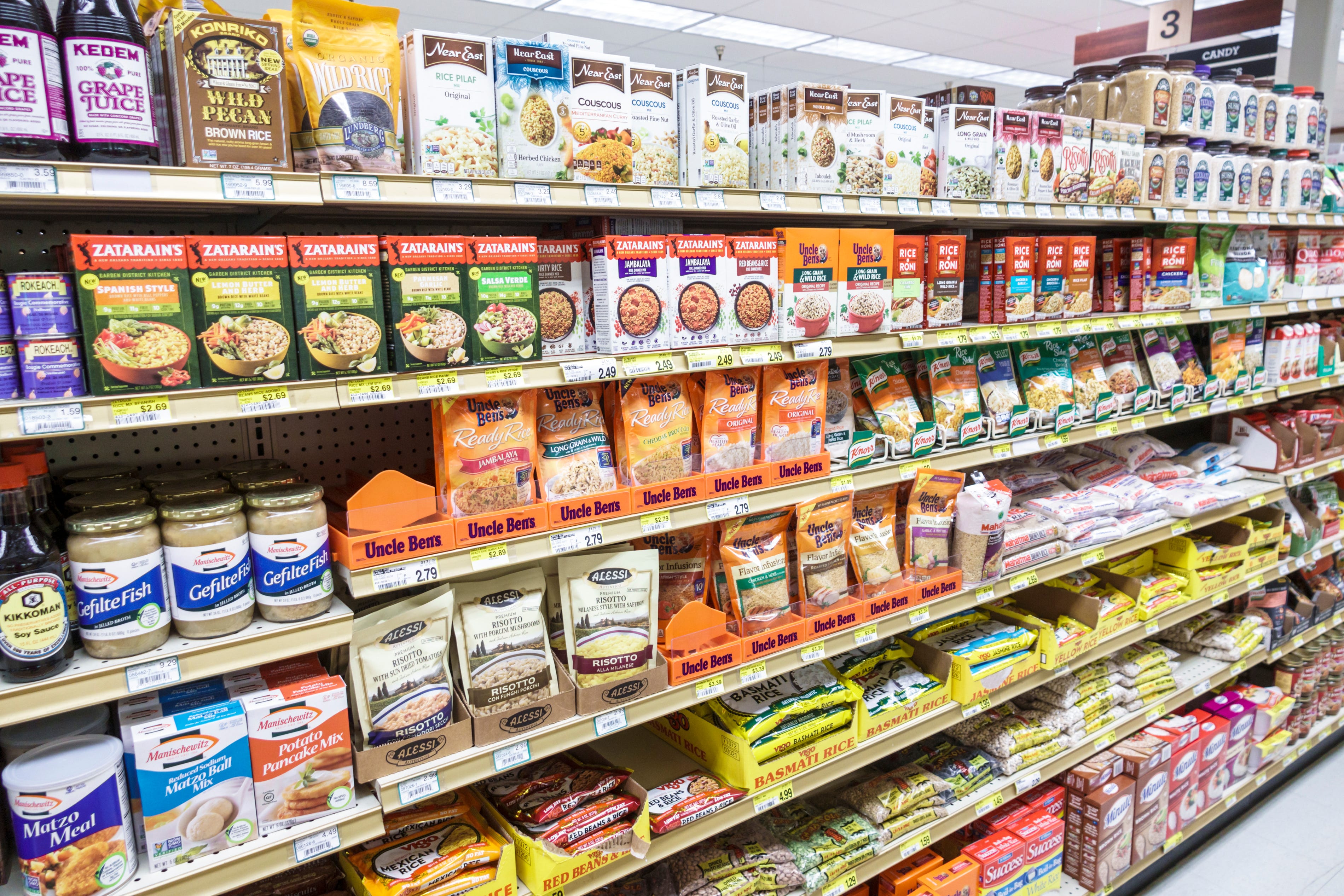Top highlight
What to Buy (and What to Skip) to Prepare for Coronavirus
Advice from people in quarantine about what you actually need — and how to make life work

Follow Elemental's ongoing coverage of the coronavirus outbreak here.
 The World Health Organization has officially declared COVID-19 a pandemic, and if you've been hoping you can ignore coronavirus and it'll just go away without affecting you or your family in some way, that's looking less and less likely. But that isn't to say you need to buy a deep freezer and build a storehouse in your backyard. So where should you begin, and how can you approach preparation without driving yourself up the wall?
The World Health Organization has officially declared COVID-19 a pandemic, and if you've been hoping you can ignore coronavirus and it'll just go away without affecting you or your family in some way, that's looking less and less likely. But that isn't to say you need to buy a deep freezer and build a storehouse in your backyard. So where should you begin, and how can you approach preparation without driving yourself up the wall?
The Centers for Disease Control and Prevention has offered up guidance on how to prepare for an outbreak near you, including making a plan with your family, practicing good health and hygiene habits, and checking in with vulnerable people in your community. They also have instructed people in at-risk groups (like the immunocompromised, the elderly, and those with chronic health conditions) to stock up on supplies like nonperishable foods.
Since things are moving quickly, it's not a bad idea to stock up a bit before the virus hits your area, since social distancing (which can include limiting your visits to, say, crowded supermarkets and pharmacies) is such a helpful preventive measure, and you may need to self-quarantine with limited notice. In case you do have to hole up for a while, here's what you may need to make it, well, suck less — based on advice from experts and folks who've actually been in quarantine.
There's already been a run on toilet paper and paper towels — for good reason.
A sensible grocery list
"It's about stocking your pantry in a smart way, but also cooking with the stuff you already have in the house," says Dawn Perry, a food writer who's currently working on a pantry cookbook. Here's her quick-and-dirty rundown of what you may need, including staples and flavor boosters so you're not just stuck eating black beans out of a can:
- Dry grains: Rice, quinoa, oats, cornmeal (for polenta).
- Beans: dried or canned.
- Tinned fish: tuna, tasty cans of smoked sardines, or mackerel.
- A couple varieties of nut butter and tahini.
- Flour (you can add water, salt, and a leavening agent like baking soda or powder to make biscuits, tortillas, and crackers).
- Eggs.
- Onions (they keep for weeks when stored in a cool, dark place).
- Garlic.
- Potatoes.
- Boxed cereal.
- Hardy veggies: broccoli, celery, carrots, and kale (they stay fresh for a long time in your fridge).
- Bananas (when they start to turn, freeze for smoothies or bake into banana bread).
- Frozen peas (add to soups and pastas).
- Frozen sausage (just one link can go a long way in adding flavor to a dish).
- Bag of frozen shrimp.
- Sliced bread (pop it in your freezer, will last a long time).
- Taste boosters: soy sauce, mayo, ketchup, fruit jam, Dijon mustard, Parmesan cheese, olives, capers.
First aid kit
No matter what is happening — pandemic or regular day — "it's prudent for every household to have basic essentials on hand to care for a minor emergency, such as a cut, burn, or insect sting," says Brad Uren, MD, assistant professor of emergency medicine at the University of Michigan Medical School. (And while you should, of course, seek medical care if you need it, for minor issues you can treat at home, it's preferable not to visit a health care facility right now if you don't have to.) A standard first aid kit will have what you need.
Extra supply of needed medication
Make sure you have a few weeks of vital medications on hand, says Uren. Mail-order pharmacies, which often dole out 90-day supplies when available, may be an option for certain people, depending on what type of medication they're taking and insurance, he says. If you're having trouble making this happen (insurance doesn't always make it easy), get on the phone with a pharmacist.
OTC meds and other symptom treatments
Should you get sick, you'll want to have the right supplies on hand to treat your symptoms, says Aaron Reddington of the survival blog the Simple Prepper. Make sure you have things like a thermometer, OTC fever reducers (acetaminophen and ibuprofen), sports drinks for rehydrating, and the bland foods you want when you have no appetite, like crackers, he says.
Hygiene stuff
There's already been a run on toilet paper and paper towels — for good reason. "While everyone has reacted and bought toilet paper and paper towels, unfortunately, I think you need to roll with the punches and buy some as well," says Reddington. "It would be terrible to be stuck in your home for weeks without any, and while it may sound ridiculous [to stock up], worst-case scenario is that you have extra," he says.
We also tend not to buy other personal hygiene products until just before we run out, adds Todd Sepulveda, the editor of Prepper Website and the host of the Prepper Website Podcast. Check to make sure that you have the hand soap, shampoo, toothpaste, and bodywash you need, he says. If you get a period, then pick up some extra tampons or pads — or go for something reusable such as a menstrual cup, like the DivaCup, or period underwear, like Thinx.
Tissues
Grab an extra box or two. You'll want to make sure you're always sneezing and coughing into a tissue, says Uren. Then, throw it away — don't stuff it in your pocket to reuse later.
A healthy perspective
Take comfort in the experience of Rebekah, 35, who has been under a government-mandated quarantine in her home in the Guangdong province in China with her husband and children since January 21. "As soon as we realized the seriousness of the situation here, my husband purchased food staples, like rice, flour, and oil to help get us through in the event that supplies became limited," she says. "After about the first two weeks veggies, fruits, bread, and other fresh foods were back in stock and we have not experienced any shortages of food or supplies," she says.
Games and craft supplies
If you have kids and their school gets closed, prepare to keep busy during a quarantine. "We haven't lacked anything physical but have had to draw on all our powers of creativity to keep ourselves and them entertained," says Rebekah. Card games, board games, crafts, making blanket forts, building block towers, and riding scooters around the living room are some activities that bring fun into their daily lives. Even if you don't have kids, think about ways to keep yourself occupied. "If people have to be quarantined for a while, they might get bored of Netflix and surfing the internet," says Sepulveda. He recommends making sure you have books to read and supplies for hobbies at the ready so you can stay entertained and engaged.
"Unless the water from your faucet is not already safe, you don't need to buy bottled water."
An office work-from-home plan
Not all jobs can be done remotely, but even some of the ones that theoretically can still might not be set up for actual WFH success. Emily, who's in the creative industry, has been in voluntary quarantine from working at her New York City office for nearly two weeks after coming home from a trip to Italy. She remains symptom-free, so she can go about her day as she chooses (still doing so responsibly, of course, so as not to put others at risk). But working from home has been a huge challenge. "There's no structure in place and no way to collaborate with co-workers who aren't in quarantine," she says. "People keep asking me how my 'second vacation' is going. It's not a vacation," says Emily. To ensure things go more smoothly, talk to your supervisor about making a telecommuting plan; and think about how to set up your workspace and your own approach to work to maximize your productivity.
A pet carrier
Emily has resisted stocking up on special items — except for one: a cat carrier. Should she need to leave her place for some time, she'll be able to bring her cat along without trouble or worry.
Supplies You Can Skip:
- Water. "Unless the water from your faucet is not already safe, you don't need to buy bottled water," says Sepulveda.
- Hand sanitizer. Yes, an alcohol-based hand sanitizer with at least 60% alcohol is recommended. However, these are nearly impossible to find right now, and you don't need to stress yourself out searching. "Hand sanitizer can be used if soap and water are not available, but it is not necessary," says Uren.
- Masks. Unless a medical professional has ordered you to wear them, hoarding masks (and sanitizer) can put others at risk. "If these critical supplies are not available to the people providing one-on-one bedside care, it could increase the risk of spread of infectious diseases in the community," says Uren.
A final note: Buy only what you need. Remember that we have a responsibility as citizens to think about everyone else, too. Maybe buying a few weeks' worth of toilet paper is okay, but you don't need 200 extra rolls. Save some for others who also want to be comfortable should they have to hole up at home for a while.
The coronavirus outbreak is rapidly evolving. To stay informed, check the U.S. Centers for Disease Control and Prevention as well as your local health department for updates. If you're feeling emotionally overwhelmed, reach out to the Crisis Text Line.
|




No comments:
Post a Comment